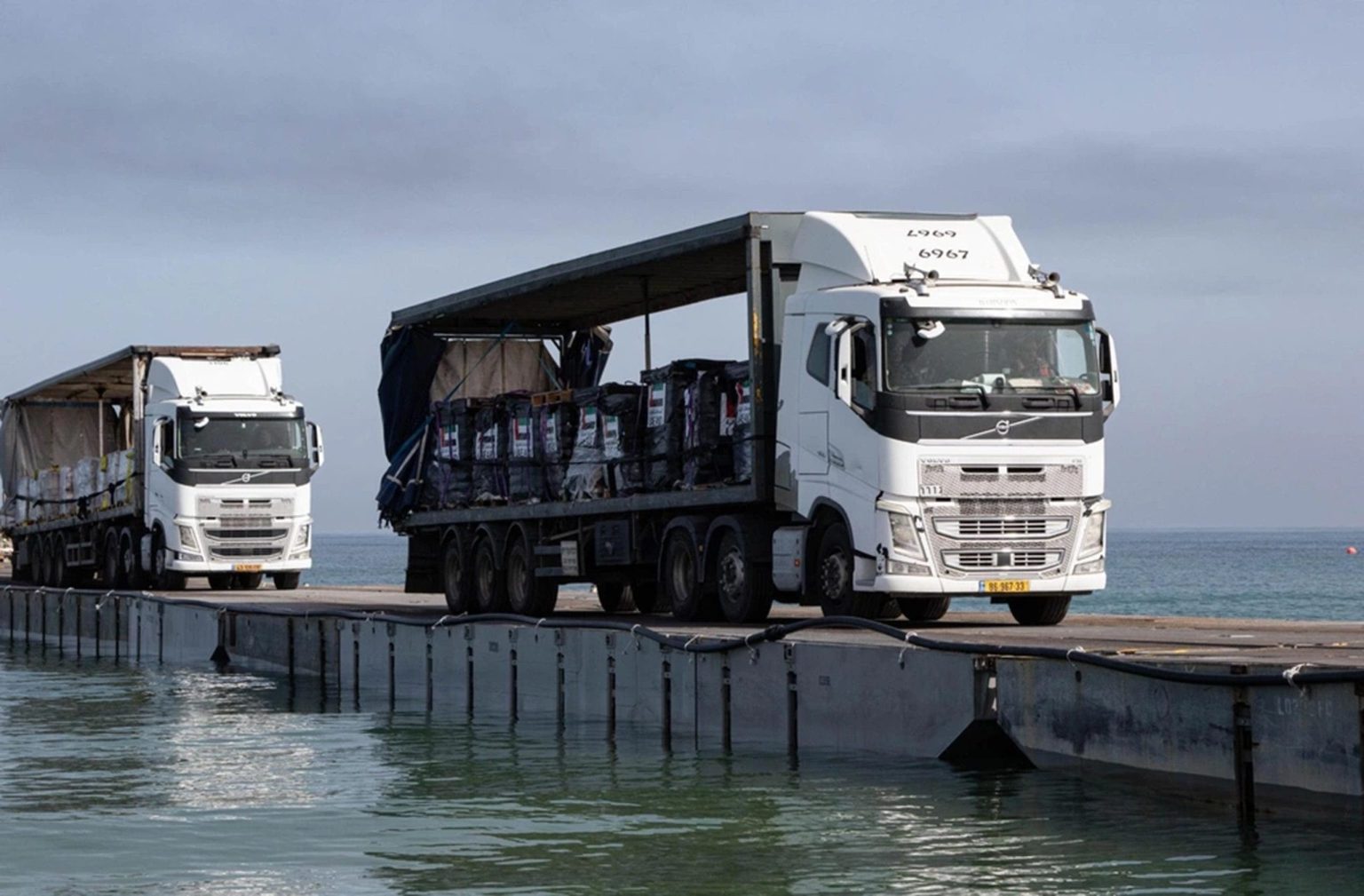Aid from the U.S.-made “floating pier” on the Mediterranean Sea intended for the Gaza Strip was interrupted due to damage caused by bad weather. As a result, the aid is now being redirected through southern Israel, rather than Egypt, due to disagreements over border control. The IDF has taken control of the Gazan side of the Rafah crossing, previously used for transporting aid, leading to the closure of Egypt’s side until Palestinians are granted control. Despite the aid trucks traveling through Israel’s Kerem Shalom crossing, United Nations workers faced difficulties in accessing the aid due to heavy fighting in the area.
The aid has become increasingly crucial with the damage to the U.S.-built “floating pier” on Gaza’s coast, as choppy seas detached four vessels stabilizing the pier. Two of the boats floated northward and landed on a beach in Ashdod, Israel, while the other two remain anchored near the pier, prompting efforts by the Israeli Navy to recover them. The U.S. had invested approximately $320 million in constructing the pier, used for transferring aid to Gaza, but as of last week, no aid had been delivered to Palestinians. Major General Pat Ryder confirmed the aid delay, and three U.S. troops were injured during operations at the pier over the previous week.
Amid concerns over cost and security related to the U.S.-built Gaza pier, both the U.S. and Israel stress that the pier remains mostly operational despite the recent damage. The Israeli navy is working on recovering the two vessels that washed ashore in Ashdod. Roughly 1,000 U.S. soldiers have been involved in building the pier, with no troops entering Gaza, although accidents have resulted in injuries. The Biden administration’s vision for a Palestinian state is considered by experts as being doomed, especially due to the explicit recognition of Hamas, with growing controversy surrounding Biden’s Gaza pier further fueling concerns.
Efforts to recover the damaged vessels and resume aid flow into Gaza are ongoing with assistance from the Israeli Navy. Despite the setbacks, the United States and Israel continue to emphasize the operational status of the pier and their commitment to delivering aid to Gaza. The aid deployment through southern Israel aims to mitigate the challenges posed by disagreements with Egypt over border control. While the aid trucks have managed to pass through Israel’s Kerem Shalom crossing, access to the aid has been impeded due to ongoing conflict in the area, underscoring the urgency of the aid delivery process.
The U.S. investment in constructing the pier and facilitating the transfer of aid highlights the importance of international assistance in providing relief to conflict-affected areas like Gaza. As aid remains a critical lifeline for Palestinians in Gaza, efforts to overcome challenges such as damaged infrastructure, border disputes, and security concerns are essential in ensuring the effective delivery of aid. The involvement of the Israeli Navy in recovery operations and the commitment of both the U.S. and Israel to the aid mission demonstrate a collective effort to address humanitarian needs and support the population in Gaza.


